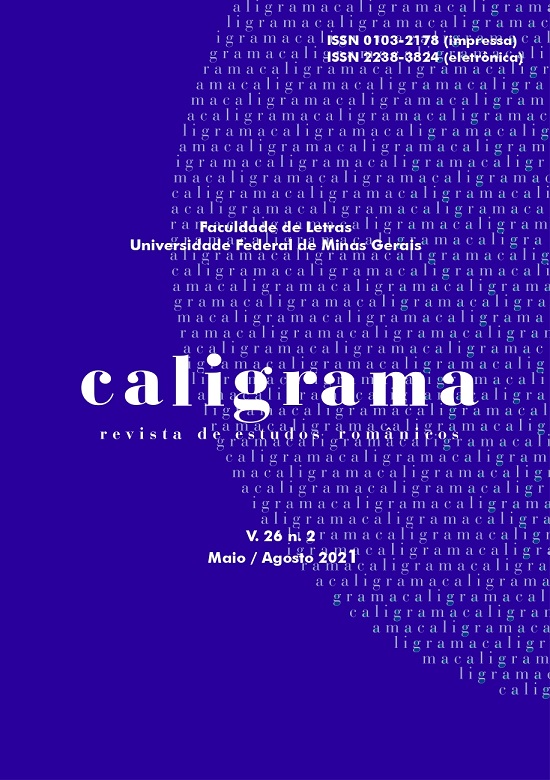Working Memory Capacity and the Implementation of New Information During Task Repetition
DOI:
https://doi.org/10.17851/2238-3824.26.2.107-123Palavras-chave:
Task Repetition, Working Memory, New Information ImplementedResumo
According to Bygate and Samuda (2005), task repetition can help students to integrate what they know with what they do, since it allows two different experiences of the same requirements of a task. Thus, such differences can result in changes from one speech production to another. Therefore, the objective of this study is to investigate which individuals, whether those with higher or lower working memory capacity, implement more new information during task repetition. A sample of 28 students from a public university underwent data collection which consisted of a working memory test (Speaking Span Test), a translation task, repeated twice, and two questionnaires. In general, the results showed that higher working memory capacity individuals were those who most implemented new information during task repetition, in terms of the implementation of new lexical items. The results are discussed in the light of the literature in the fields of working memory and task repetition. Final considerations are made suggesting that task repetition, in addition to bringing gains to oral production in terms of fluency and accuracy, for example, makes participants in the higher working memory capacity group able to allocate more cognitive and attentional resources to implement a greater number of new lexical items in second task performances.
Referências
BADDELEY, A. D. Human memory: theory and practice. Hove: Lawrence Erlbaum, 1990.
BADDELEY, A. D. Working memory. Science, Washington, DC, v. 225,
n. 5044, p. 556-559, 31 Jan. 1992. DOI: 10.1126/science.1736359.
BROWN, H. D. Teaching by principles: an interactive approach to
language pedagogy. White Plains, NY: Longman, 2001.
BYGATE, M. Introduction. In: BYGATE, M. (ed.). Learning language
through task repetition. Amsterdam: John Benjamins, 2018. p. 1-25. DOI: https://doi.org/10.1075/tblt.11.intro.
BYGATE, M.; SAMUDA, V. Integrative planning through the use of
task repetition. In: ELLIS, R (ed.). Planning and task performance in a
second language. 11. ed. Amsterdam: John Benjamins, 2005. p. 37-74.
BYGATE, M.; SKEHAN, P.; SWAIN, M. (org.) Researching pedagogic
tasks: second language, teaching, and testing. Harlow: Pearson, 2001.
DANEMAN, M. Working Memory as a predictor of verbal fluency.
Journal of psycholinguistic research, [S. l.], v. 20, n. 6, p. 445-464, Nov.
DOI: https://doi.org/10.1007/BF01067637.
DANEMAN, M.; GREEN, I. Individual differences in comprehending
and producing words in context. Journal of memory and language, [S.
l.], v. 25, n. 1, p. 1-18, Feb. 1986. DOI: https://doi.org/10.1016/0749-
X(86)90018-5.
ELLIS, R. Task-based language teaching and learning. Oxford: Oxford
University Press, 2003.
ENGLE, R. W.; KANE, M. J.; TUHOLSKI, S. W. Individual differences
in working memory capacity and what they tell us about controlled
attention, general fluid intelligence and functions of the prefrontal
cortex. In: MIYAKE, A.; SHAH, P. (ed.) Models of working memory:
mechanisms of active maintenance and executive control. New York:
Cambridge University Press, 1999. p. 102-134. DOI: https://doi.
org/10.1017/CBO9781139174909.007.
FORTKAMP, M. B. M. Working memory capacity and L2 speech
production: an exploratory study. 2000. Tese (Doutorado em Inglês e
Literatura Correspondente) – Universidade Federal de Santa Catarina,
Florianópolis, Santa Catarina, Brasil, 2000.
FORTKAMP. M. B. M. Working memory capacity and aspects of L2
speech production. Communication and cognition, [S. l.], v. 32, n. 3-4,
p. 259-296, 1999.
GUARÁ-TAVARES, M. G.; CARVALHO, S. A. Working memory
capacity and implementation of planned ideas into L2 speech performance
of translation tasks. Revista de letras, Fortaleza, v. 1, n. 37, jan./jun. 2018.
JAKOBSON, R. Aspectos linguísticos da tradução. In: JAKOBSON, R.
Linguística e comunicação. São Paulo: Editora Cultrix, 2007. p. 63-72.
JUST, M. A.; CARPENTER, P. A. A capacity theory of comprehension:
individual differences in working memory. Psychological review, [S.
l.], v. 99, n. 1, p. 122-149, 1992. DOI: https://doi.org/10.1037/0033-
X.99.1.122.
LAMBERT, C. et al. Task repetition and second language speech
processing. Studies in Second language acquisition, Lancaster, v. 39, n. 1, p. 167-196, Mar. 2017. Disponível em: http://www.research.lancs.ac.uk/portal/en/publications/task-repetition-and-second-language-speechprocessing(67fb9e1d-d26e-43d6-9d22-c85c6e886846).html. Acesso em: 20 maio 2019. DOI: https://doi.org/10.1017/S0272263116000085.
LYNCH, T.; MACLEAN, J. A case of exercising: effects of immediate
task repetition on learners’ performance. In: BYGATE, M.; SKEHAN, P.;
SWAIN, M. (ed). Researching pedagogic tasks second language learning,
teaching and testing. London: Longman, 2001.
MITCHELL, A. E.; JARVIS, S.; O’MALLEY, M.; KONSTANTINOVA,
I. Working Memory measures and L2 proficiency. In: WEN, Z. E.;
MOTA, M. B.; MCNEILL, A. (ed.). Working Memory in second language
acquisition and processing. São Paulo: Telos Editora, 2015. p. 270-284.
DOI: https://doi.org/10.21832/9781783093595-019.
PAULA, S. G. C. Repetição de tarefa de tradução, memória de trabalho
e desempenho oral em L2. 2020. Dissertação (Mestrado em Estudos da
Tradução) – Universidade Federal do Ceará, Fortaleza, 2020.
PEIRCE, J. W. Generating stimuli for neuroscience using PsychoPy.
Frontiers in neuroinformatics, [S. l.], v. 2, n. 10, p. 1-8, Jan. 2009.
Disponível em: https://www.frontiersin.org/articles/10.3389/
neuro.11.010.2008/full. Acesso em: 25 dez. 2018. DOI: https://doi.
org/10.3389/neuro.11.010.2008.
PEIRCE, J. W. PsychoPy – Psychophysics software in Python. Journal
of neuroscience methods, [S. l.], v. 162, n. 1-2, p. 8-13, May 2007.
Disponível em: https://www.sciencedirect.com/science/article/pii/
S0165027006005772. Acesso em: 25 dez. 2018. DOI: https://doi.
org/10.1016/j.jneumeth.2006.11.017.
PREBIANCA, G. V. V. Working memory capacity, lexical access and
proficiency level in L2 speech production. 2009. Tese (Doutorado em
Inglês e Literatura Correspondente) – Universidade Federal de Santa
Catarina, Florianópolis, 2009.
WANG, Z. On-line time pressure manipulations: L2 speaking
performance under five types of planning and repetition conditions.
In: SKEHAN, P. (ed.). Processing perspectives on task performance.
Amsterdam: John Benjamins, 2014. p. 27–62.
WEISSHEIMER, J.; MOTA, M. B. Working Memory capacity and lexical
density in L2 speech production. Organon, Porto Alegre, n. 51, p. 267-
, jul./dez. 2011. DOI: https://doi.org/10.22456/2238-8915.28843.
WHITNEY, P.; ARNETT, P. A.; DRIVER, A.; BUDD, D. Measuring
Central Executive functioning: what’s in a reading span? Brain and
cognition, [S. l.], v. 45, n. 1, p. 1-14, Feb. 2001. DOI: https://doi.
org/10.1006/brcg.2000.1243.





